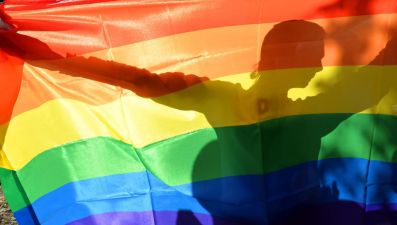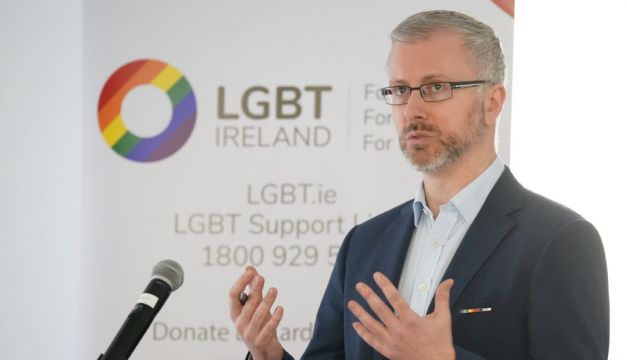A charity is aiming to expand Pride events into rural towns in an effort to improve Ireland as a country for members of the LGBT community.
Launching its five-year plan, entitled ‘Making Ireland The Best Place In Europe To Be LGBTQI+’, LGBT Ireland said it aimed to make the people it represents more visible and more safe.
The plan cites Central Statistics Office (CSO) figures from a 2019 survey in which it found that LGBTQI+ people were the group with the highest rate of perceived discrimination in Ireland.
The charity is committing to provide extra training to volunteers at its national helpline, as it is receiving calls that are “increasingly complex in their nature”.
It set out goals to improve research and to help asylum seekers and refugees who are members of the LGBT community, as well as committing to advocating for certain legislative reforms.
This includes hate crime laws, an all-island ban on conversion therapy, better access to trans healthcare, and “fully inclusive” assisted human reproduction legislation.
Existing laws, it said, “no longer reflects society’s overwhelming intention towards LGBTQI+ equality”.
“The expansion of Pride events in rural towns, ensuring LGBTQI+ visibility across Ireland”, is another goal it set for the next five years.
Minister for Equality Roderic O’Gorman launched the report at the Irish Human Rights and Equality Commission on Monday.
Paula Fagan, CEO of LGBT Ireland, said ahead of the launch: “LGBTQI+ people deserve to be able to live full, safe, authentic lives as part of communities, regardless of age or gender, where they live or how they identify/express themselves.

“In our new Strategic Plan, we lay out an ambitious road map for how together we can build on the amazing work and achievements of the past decades and through partnership, collaboration, compassion and empathy we can see Ireland become the best place in Europe for LGBTQI+ people to live.”
Ireland is ranked 16th among 49 European countries in terms of LGBTQI+ rights and recognition.
LGBT Ireland offers supports to people who are lesbian, gay, bi, transgender, queer, or intersex, as well as their family members, and runs a national helpline at 1800 929 539.







